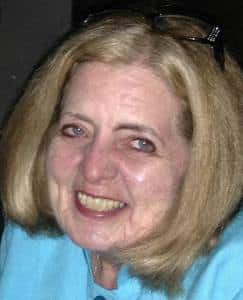
Danae Columbus, opinion columnist
Several dozen New Orleans women active in politics came to the home of Julie Schwam Harris last night to network with Northshore legislative candidate Lisa Condrey Ward, who pledged to be a consensus builder with a new independent voice and perspective that — if elected — could be benefit their entire region.
A lawyer, wife, mother, and real estate developer best known for restoring the historic Southern Hotel in downtown Covington, Ward said she had never before thought about running for office but knew now was her time. Ward joins a new wave of women candidates including State Treasurer hopeful Angele Davis, three women seeking to become New Orleans first female mayor and nine women running for various positions on the New Orleans City Council, who want to create a government that is more representative of the voters it serves.
Women’s political activism in New Orleans really began in the 1939 election cycle when the Independent Women’s Organization was formed to direct and appeal to women voters citywide outside of the traditional system of ward politics that had previously dominated the city. “Big Jim” Comiskey was an Irish Channel ward leader, assessor, and founder of the Crescent City Democrats which still endorses candidates today. His wife Blanche was an early IWO member and mentor to many of today’s women leaders. With almost 400 members, IWO is the largest of New Orleans’ endorsing organizations and a leader in identifying and grooming women candidates.
According to the non-partisan platform PoliticalParity.org, simply watching women run galvanizes female citizens and makes them more interested in becoming actively involved in the political arena. Many women candidates offer a new style of political leadership. Women as a group are more partial to non-hierarchial collaboration and inclusion. Female leaders gather policy information from different sources and rely on different types of information to make decisions.
Women elected to executive and legislative posts are motivated more often by policy goals instead of power or prestige and are more likely to prioritize issues that affect women, families, and children.
Polling by PoliticalParity.org also reveals that America’s voters rate women above or equal to men in seven of eight traits considered crucial to leadership including being outgoing, hardworking, honest, intelligent, creative, compassionate and ambitious. Women are also ranked higher than men in five of seven policymaking areas in working out compromises, keeping government honest, standing up for what they believe in and representing constituent interests.
While the odds appear to favor women candidates, the political realities are often different. Unconscious gender and racial bias can still influence voter choices. According to a 2015 study by Vanderbilt University, some voters have a hard time seeing women as leaders. Women candidates are expected to be more qualified in ways that matter to today’s voters.
Building an image as the most qualified candidate requires resources to fund the tools necessary for direct voter outreach. Without adequate education, too many voters could rely solely on a person’s name and sex when selecting a candidate.
A 2017 survey sponsored by POLITICO along with several universities shows that women are much less likely than men to consider running for office as youngsters and more often think about that possibility later in life. Males — especially those who engaged in varsity or junior varsity sports and/or are encouraged by parents — develop political aspirations at an early age. Likewise, young women who played sports were 25 percent more likely to exhibit political aspirations.
Those individuals who ran for student government positions were also more likely to seek elected office. During college years, men’s political confidence increases while more women doubt their abilities. After entering the workforce, lack of confidence continues for many women even those who are engaged in “feeder” careers including business, law, education and politics/activism.
Yet, when women are recruited, they respond equally favorably as men. Clearly, the key to getting more women elected is recruiting and training them and helping provide the fundraising support necessary to educate voters. As more women run and serve, sexism in the voting booth and in society will naturally decrease.
Danae Columbus, who has had a 30-year career in politics and public relations, offers her opinions on Thursdays. Her career includes stints at City Hall, the Dock Board and the Orleans Parish School Board and former clients such as District Attorney Leon Cannizzaro, City Council members Stacy Head and Jared Brossett, Foster Campbell, Lt. Gov. Jay Dardenne, former Sheriff Charles Foti and former Councilwoman Cynthia Hedge-Morrell. Her current clients include District B City Council candidate Seth Bloom and At-Large City Council candidate Helena Moreno.
How about just supporting the best candidate without regards to their race or sex? Identity politics isn’t good for the country.